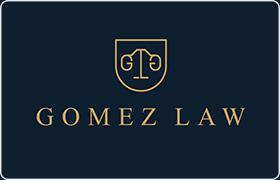Corona Real Estate Other Lawyer, California, page 5
Sponsored Law Firm
-
 x
x

Click For More Info:
-
Gomez Law, APC
3250 Wilshire Blvd Suite 1901 Los Angeles, CA 90010» view mapReal Estate Dedication. Compassion. Trust.
Whether you are looking to purchase a house or commercial property or in the process of probate, we are here to provide the legal support you need to help you move forward.
800-901-4291
Includes: Commercial Leasing, Commercial Real Estate, Condominiums, Conveyancing, Housing & Urban Development, Premises Liability, Residential Real Estate, Title Insurance
Keith Andrew Attlesey
Commercial Real Estate, Litigation, Contract, Business
Status: In Good Standing Licensed: 31 Years
Peter Holzer
Commercial Real Estate, Business, Bankruptcy, Real Estate
Status: In Good Standing Licensed: 44 Years
Jason William Glicksman
Commercial Real Estate, Litigation, Lawsuit & Dispute, Business
Status: In Good Standing Licensed: 21 Years
John Chiwon Kang
Commercial Real Estate, Litigation, Transportation & Shipping, Banking & Finance
Status: In Good Standing Licensed: 29 Years
Ralph H. Blakeney
Commercial Real Estate, Litigation, Consumer Rights, Consumer Bankruptcy
Status: In Good Standing Licensed: 37 Years
Ralph Blakeney
Commercial Real Estate, Litigation, Consumer Rights, Consumer Bankruptcy
Status: In Good Standing Licensed: 37 Years
Lynda D Tran
Commercial Real Estate, Litigation, Business, Bankruptcy, Electronic Commerce
Status: In Good Standing Licensed: 25 Years
Ralph Harvey Blakeney
Commercial Real Estate, Litigation, Consumer Rights, Consumer Bankruptcy
Status: In Good Standing Licensed: 37 Years
Richard Cooper Watson
Commercial Real Estate, Wills, Merger & Acquisition, Corporate
Status: In Good Standing Licensed: 16 Years
Kenneth Jay Block
Commercial Real Estate, Public Finance, Banking & Finance
Status: In Good Standing Licensed: 31 Years
 Mark Gomez Los Angeles, CA
Mark Gomez Los Angeles, CA Practice AreasExpertise
Practice AreasExpertise
